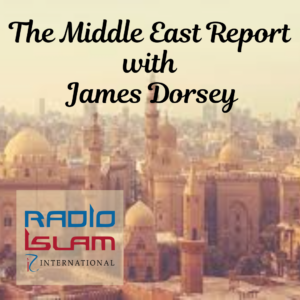Annisa Essack | kzn@radioislam.org.za
19 May 2023 | 11:00 CAT
2 min read

Photo Credit: WORDCRAFTBYANNISA
James Dorsey discussed the return of political Islam in the Middle East.
He referred to how Muslims, especially in the Middle East, in surveys, said religion played too great an influence in their lives and expressed scepticism and distrust of civilian governmental, political and religious authorities and were now backtracking as the majority in many Arab countries saying they wanted religious figures to have more influence over government policy and that religion was now the most crucial thing in their lives.
He added that groups like the Muslim Brotherhood were once rejected, but recently their ideologies are becoming accepted again.
The Turkish elections, he says, reflected the trend after Erdoğan’s party won the Parliamentary elections, and Erdoğan expected to win the run-offs on May 28. Dorsey said that his success is not just his nationalist attitude but his alliance with religious conservatives in the country.
Speaking on the relations mediated by China between Iran and Saudi Arabia, he said Saudi Arabia had hoped to see a resolution with Yemen. However, the US has again accused Iran of arming the Houthis in Yemen. He added that the best the Saudis could get out of Yemen was a withdrawal and an admission of defeat as the Houthis would control Northern Yemen and Marib.
With UAE support, the possibility of seeing Yemen split into two states.
As tensions escalated with Azerbaijan, things were not going too well for Iran as the emergence of a group calling for the independence of ethnic Azerbaijani’s.
Listen to the full interview on Sabahul Muslim with Sulaimaan Ravat here







0 Comments